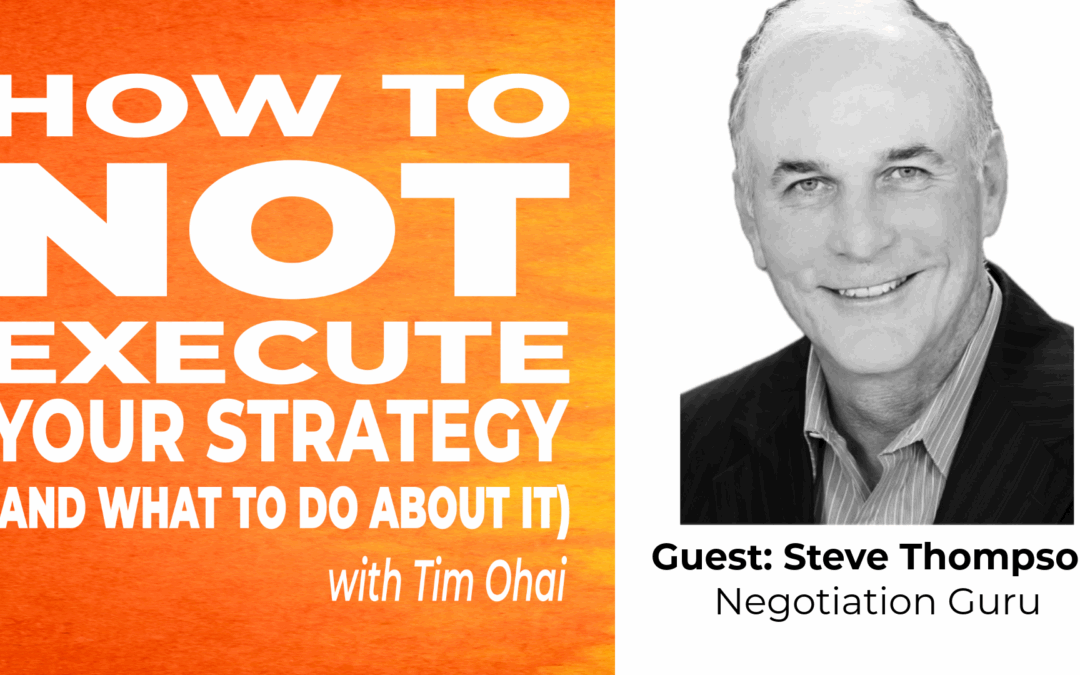How to NOT Execute Your Strategy (Episode 36): Steve Thompson
Steve Thompson is the expert senior executives turn to when their GTM strategy is producing disappointing business results. His expertise in sales leadership and billion-dollar negotiating gives him a special insight into one of the biggest threats to EVERY business strategy – the deals that people make (both buying and selling). In this episode, Steve pulls back the curtain on why so many leaders unknowingly sabotage their own strategies – and what it takes to execute with clarity, consistency, and confidence. Get ready – this conversation is going to challenge how you think about execution
- Find the audio version on your favorite platform or go directly via RSS.com
- Watch this episode on Youtube
Three key concepts:
- Every strategy eventually translates into a revenue number for sales or a budget number for spending. And those numbers become deals. Each deal is a brick in the wall of your strategy. If those bricks aren’t consistent and aligned, you’re not executing strategy – instead, you’re literally stuffing your wall full of waste and underperformance as the result of those deals.
- Clarity isn’t just about what you do—it’s about what you refuse to do. A strong strategy sets boundaries. It defines what gets prioritized and what gets ignored. That kind of clarity acts like a filter. It helps everyone on the team focus, say no with confidence, and avoid wasting time on distractions dressed up as opportunities.
- If your leadership behavior doesn’t match the strategy, the strategy dies. People don’t follow strategy decks – they follow actions. The moment leaders start making short-term decisions that contradict the long-term goal, the team stops trusting the strategy. And without trust, execution unravels.
BONUS – Leader guide: Use the following questions for (a) self-reflection as a leader and/or (b) a great discussion with your team.
1) Listen to the full episode before this discussion.
2) Would it be fair to say that strategy without execution is meaningless? Why or why not?
3) In 10 words or less, define strategic execution. Share your answers.
4) The old definition of strategy put the emphasis on having a plan. The modern definition of strategy changes that and puts the emphasis on decision-making. What are the elements required for great decision-making?
5) Rank the top five elements now and put them in order. Share your answers.
6) How good are we at those five things? Why? What leadership advice does this generate?
7) Option: Take time right now to define exactly what following that advice looks like (the outcome(s), metrics, and requirements).
If you enjoyed this episode, please share it with at least one person. And leave me a review on whatever platform you engaged this podcast. Your feedback is invaluable to me.
Holomua. Onward and upward.
All the best ~ Tim
PS Like what you’re reading? Please share this content with a friend so they can join the community.


Recent Comments